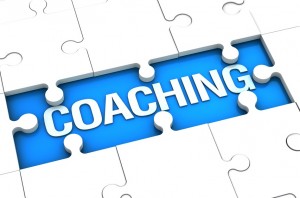
Grab your FREE Tip Sheet on Selecting the Best Coach for you!
Do your employees value your coaching style?
Research has shown that many leaders overestimate their coaching abilities. Some don’t understand how to do it, while others don’t like to do it. The additional issue is, many bosses have been poorly trained by their bosses on how to coach others effectively.
Effective coaching focuses on:
- -Improving employees’ abilities to do their jobs
- -Developing soft and technical skills
- -Guiding critical thinking and decision-making processes
- -Changing poor behaviors into good ones
- -Clarifying goals and focused actions steps
- -Encouraging initiatives and resourcefulness
Telling employees to “work harder” does not improve anyone’s performance. This coaching hype is often used when bosses are not effective coaches and don’t know what else to say.
5 Key Factors Required for You to Become an Effective Coach
Get Trained. To develop any skill, it’s important to hire the right trainer. This makes the learning process easier and faster so you develop good habits and stop bad habits quickly. Skills include how-to: listen, ask open-ended questions, build solutions, answer ‘why’, establish milestones and goals, and develop patience.
Listen. The ability to truly listen is the #1 reason effective coaches are successful. When bosses talk over employees, multi-task and give standard responses, they are not being effective coaches. As a coach, listen to what is being said and not said. Use persuasive listening skills to brainstorm and build solutions. Then, guide your employees to take focused action steps.
Believe in Them. Believing in your employees’ abilities is key, even when they are failing. For example, a facilitator was having a difficult time leading her team. Because the manager believed in her, he adjusted his coaching style. He shared on-point stories, and provided specific and actionable feedback. Along the way, he reminded her to believe in herself. The team’s results were amazing.
Use Qualified Assessments. Scientifically validated assessments help you coach with laser-like effectiveness. Too often as coaches, we aren’t on point with the real issue and we fail to provide actionable feedback. For example, telling sales people who are highly sociable to ‘listen more than talk’ won’t change their behavior. They love telling stories and sharing experiences. A good coach will provide specific feedback on how to ask open-ended questions and listen with a purpose.
Have Compassion. Many of us forget what it was like when we were an employee. Some of us learned from the school of hard knocks, while others had bosses that micro-managed them. Times have changed. Effective coaches listen for the employees’ concerns and their specific road blocks. They have compassion for their circumstances and customize specific feedback. (Remember, what worked for one person may not work for others.) They empower their employees to take initiatives and focused-actions required to achieve desired goals.
Remember, coaching skills are simple and can be learned. However, it takes disciplined practice to master them.
©Jeannette Seibly, 2018
Grab your FREE Tip Sheet on Selecting the Best Coach for you!
Jeannette Seibly has been recognized as a catalyst and leadership expert for the past 25 years. As an executive coach, speaker and author, she provides straight talk with dynamic results. What’s in your way of becoming an effective coach? Are you ready to step up and become the coach your employees value? Don’t wait until it’s too late. Contact Jeannette now for a preliminary confidential conversation.
